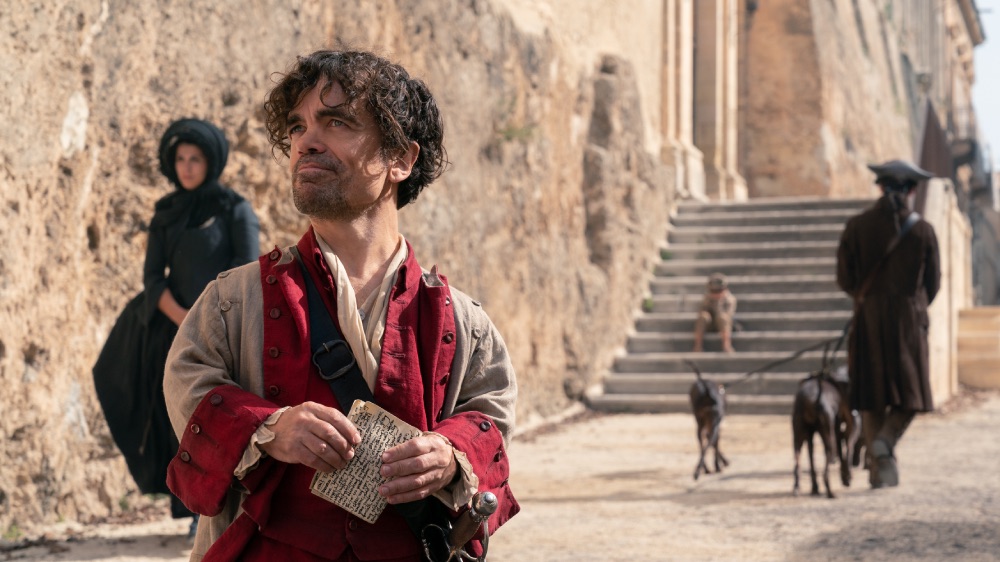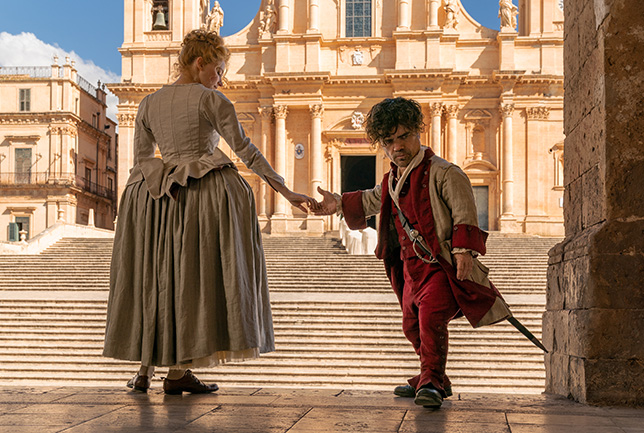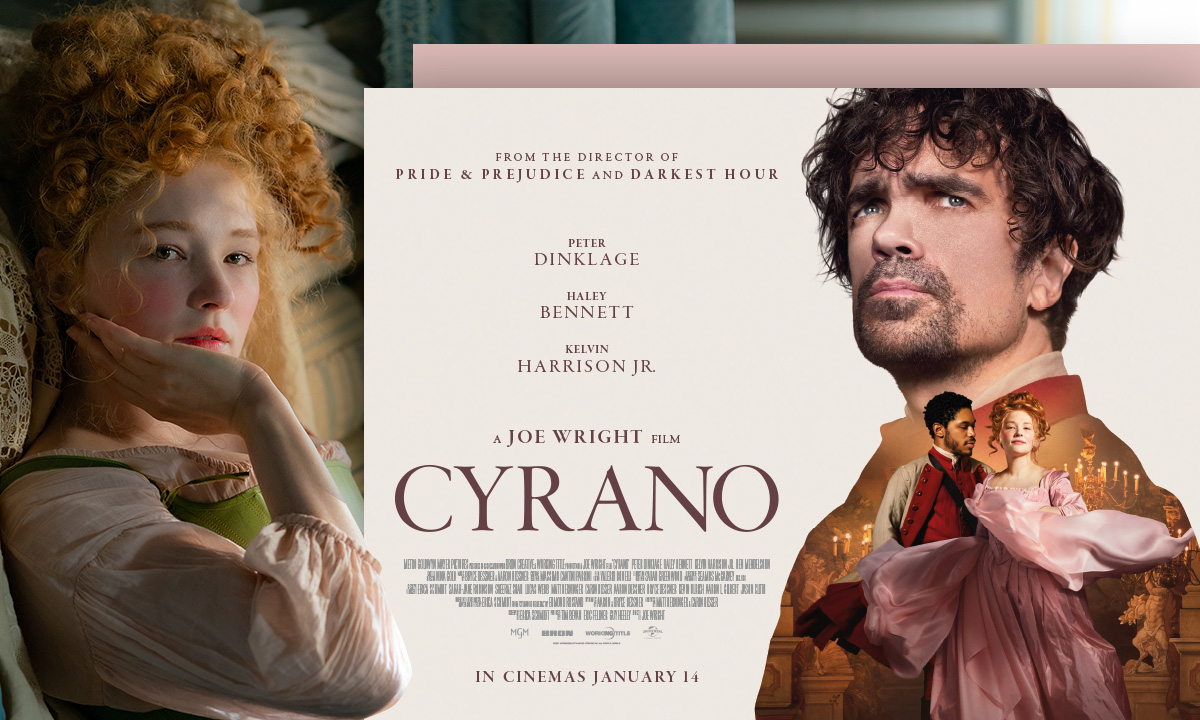Joe Wright’s latest project, a musical reimagining of the classic tale, “Cyrano,” finally came to theaters Feb. 25 after premiering at the Telluride Film Festival last September. The film is based on Erica Schmidt’s stage musical, and Schmidt also provided the film’s screenplay. Originally an off-Broadway production, this rendition of Edmond Rostand’s play adds natural melodies that give more scope for sentiment and imagination. Following a plot of love and insecurities, this story, which was written over a hundred years ago, still rings true today with its themes of yearning and courage.
Cyrano de Bergerac (Peter Dinklage) finds himself hindered in pursuing the woman he loves, though this version of “Cyrano” finds him hesitant, not over an especially large nose, but rather an undersized stature. In the story, he writes her romantic letters under the name of a man she believes is her true love. Dinklage is heartbreaking in this role, with longing etched in every part of his face as he looks at his love Roxanne (Haley Bennett). His enunciated delivery of each line leaves the audience breathless, and translates to his impressive singing during the film. Dinklage comes across wonderfully as a star-crossed lover, as well as an accomplished swordsman in fight sequences highlighted by sporadic camera movements and precise lighting. Overall, Cyrano is shown to be eloquent and daring, except when it comes to confessing his love.

Bennett is as bewitching and charming as Roxanne, with subtle gestures that reveal a passionate undercurrent. From her coy and affectionate handling of her beloved’s letters to her expressive face and hands, there is a lot more going on underneath the surface than what first appears. Her singing is nuanced and layered, appealing to anyone who has felt the intensity of love. “Every Letter” is a song that deserves significant recognition, with Bennett’s performance during the number suggesting the intimacy of letters and the power of emotion. Yet Roxanne has a terrible blind spot when it comes to love, thinking that it can only happen instantaneously, which leads her to Christian (Kelvin Harrison Jr.).
Choreographed by brothers Jeff and Rick Kuperman, everyday situations such as baking or training transform into graceful and intricately gorgeous choreography onscreen. Harrison especially dives into the choreography with an elegant air, though his character is as unrefined in his words as they come. During “Someone to Say (Reprise),” neither his acting nor dancing falters. He struggles with the song’s articulation convincingly and brings attention to the moral obligation Cyrano and Christian have to Roxanne to tell her the truth in an authentic manner. She deserves to know that she is making a decision between the two of them, and find out the whole truth.
This film comments on the fear of confessing one’s true feelings in a relatable way. People from this era can feel for Cyrano while also recognizing that love is useless when left unsaid. The film’s poignant ending highlights the importance of expressing one’s true feelings instead of sitting on them for years. Yet for all Cyrano’s dawdling, the film’s pace is never sacrificed, with just enough action interspersed throughout the romance to keep things interesting. Roxanne’s rebuff of the overreaching Duke De Guiche (Ben Mendelsohn) also speaks to modern women. When women are faced with the affections of a man in power, they often must treat the matter delicately while afraid for their lives. The control Roxanne possesses over her own emotions in order to survive is something distinctive to a certain human experience.

Aesthetically, “Cyrano” gives off the lavish beauty of a detailed painting. Cinematographer Seamus McGarvey takes credit for these striking visuals, through which the audience is completely transported to a romanticized version of 17th century France. The warm colors are perfectly overwhelming, which coincides with the way feelings can overcome people. Between the whimsical dance sequences and familiar camera shots on the actor’s faces and hands, “Cyrano” merges magical elements with reality: letters fall from the sky and fencers draw their swords perfectly to allow for dramatic exits while characters exchange profound conversations and explore the lovely setting. Costuming is another strength of this film, even drawing the eye of the Academy Awards, though the actors’ performances were equally, if not more, deserving of nominations. Still, such clothing can hardly be ignored, especially Roxanne’s wardrobe. While reds and yellows surround her, Roxanne is shown in cooler colors like green or blue, and only indulges in a warmer tone when she is in love.
The score, composed by another pair of brothers Aaron and Bryce Dessner, is introspective and romantic. The music has a timeless quality to it and the lyrics by Matt Berninger and Carin Besser push the audience to question the extent of love and their expectations for it. Dinklage and Bennett were part of the stage musical in addition to the film, and they share comfortable chemistry on screen.
Wright’s close-up shots on these stars draw the audience closer to the experience of human attachments and innermost thoughts. After such elongated isolation, it is comforting to see such powerful sensations on the silver screen.
“Cyrano” is a classic love story with an exquisite finish by Wright that is sure to attract modern audiences. With a fantastic cast and talented director, this film delivers on a full emotional scale.
Lucia Arreola is an Entertainment Editor. She can be reached at arreoll1@uci.edu


